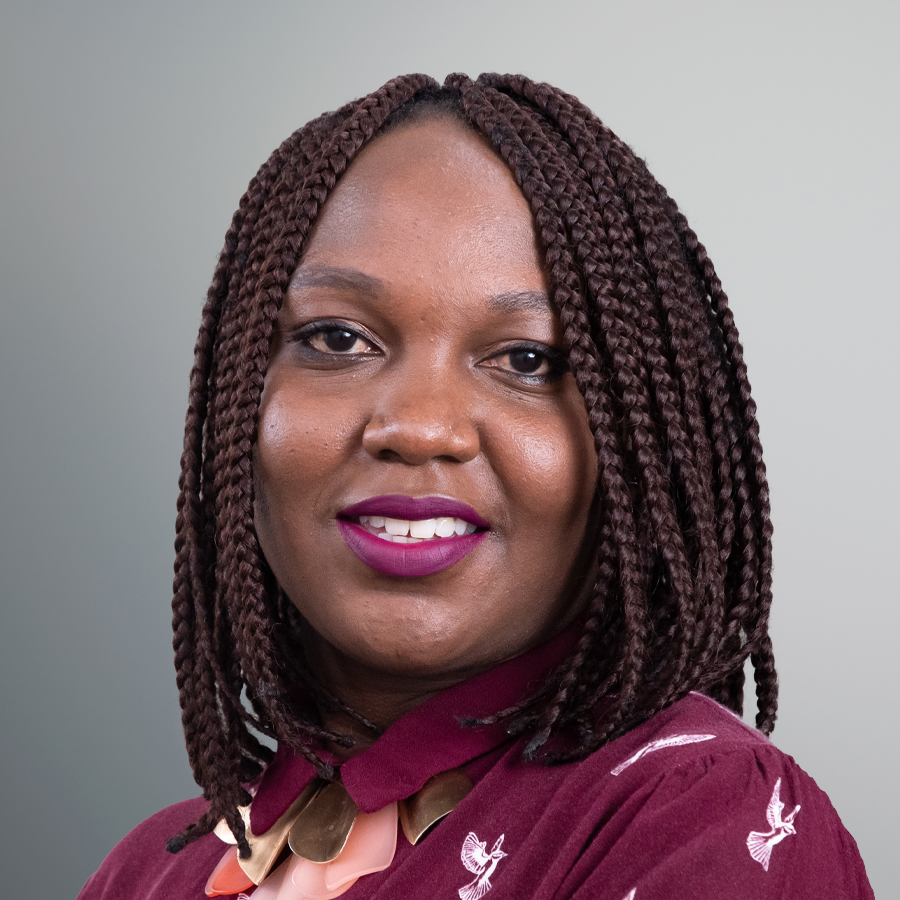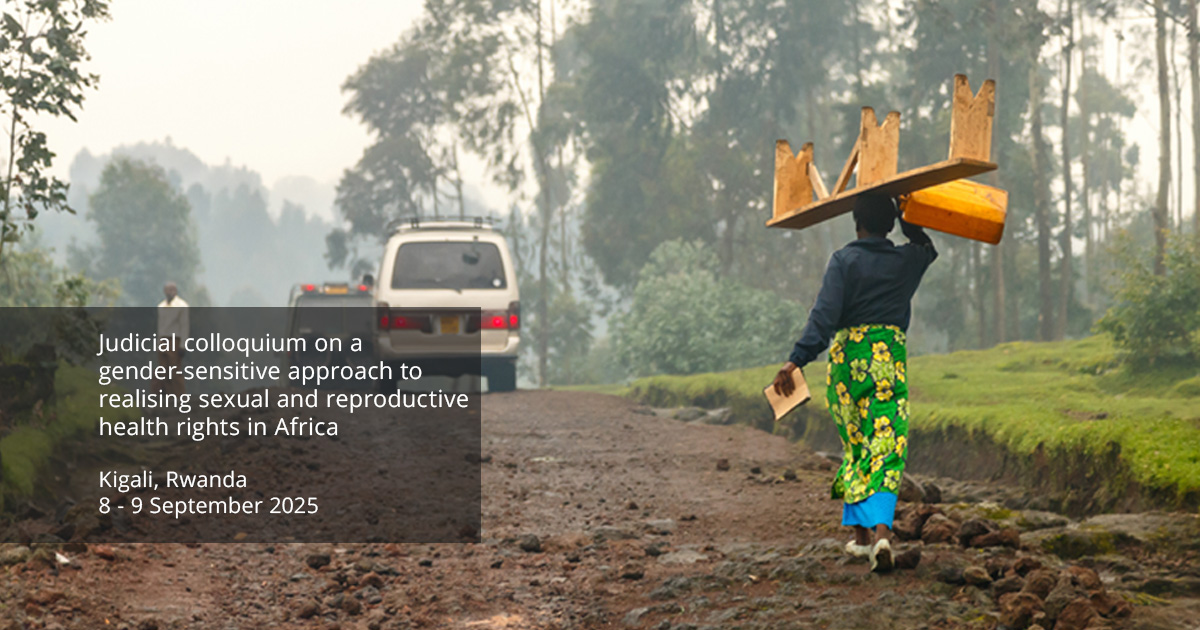On 8 and 9 September 2025 the Centre for Human Rights, Faculty of Law, University of Pretoria (the Centre) and the Initiatives for Peace and Human Rights (iPeace) hosted a hybrid judicial colloquium on a gender-sensitive approach to realising sexual and reproductive health rights (SRHR) in Africa in Kigali, Rwanda.
The full realisation of the right to health, including SRHR, for women and the girl-child in Africa is protected under the African Union human rights legal framework (AU human rights instruments). The African Charter on Human and Peoples’ Rights, the Protocol to the African Charter on Human and Peoples’ Rights on the Rights of Women in Africa and the African Charter on the Rights and Welfare of the Child provide for the treaty normative frameworks. While these instruments enjoy wide ratification on the continent, and significant domestication at a national level, access to SRHR services across East Africa remains uneven and inadequate. This is more so in the case of vulnerable and marginalised women such as older women, women with disabilities, migrant women, refugee women and women in conflict and humanitarian settings and sexual and gender minorities.
As part of a SIDA funded project, the Centre and iPeace convened a judicial colloquium seeking to influence the interpretation of SRHR, women’s rights norms, and the rights of the girl-child at the national levels through progressive national and regional jurisprudence. The development of progressive judicial pronouncements on SRHR on the continent will increase the probability that the substance of SRHR, as set out in AU human rights instruments, is clearly understood and implemented at a national level for the benefit of all women and girls.
To increase the likelihood of the adjudication of impactful cases enforcing SRHR at the national level, the colloquium brought together judicial officers from different East and Southern African states with a variety of roles in the judicial and litigation processes. This included, judicial officers who adjudicate cases at a national level, members of the advocates profession and civil society organisations that undertake strategic litigation on SRHR matters at a national and regional level. Members of the judiciary present included officials from Democratic Republic of Congo, Uganda, Tanzania, Malawi, Zimbabwe and Tanzania.
The sessions covered the theoretical basis for the protection of SRHR on the continent, with particular focus on the rights of vulnerable and marginalised groups as well as in-depth analysis of existing jurisprudence on the continent on SRHR. In addition to exploring the areas for potential judicial clarification of existing norms, the sessions delved into discussions on the challenges and opportunities for strategic litigation on SRHR. Candid discussions took place between present officials of the courts as adjudicators of legal petitions and legal practitioners who litigate matters before the courts on behalf of victims of human right violations. Areas identified as in need of attention to increase the quality and quantity of matter on SRHR before the national courts included: addressing procedural hurdles to access to judicial bodies at a national and regional level, capacity strengthening of judicial officers on international law frameworks and impactful strategic litigation, strengthening collaboration and institutional cooperation within the justice systems to ensure adequate enforcement of positive judicial pronouncements on SRHR.
The perceived ‘contentious’ nature of SRHR claims was also discussed at the convening. Practitioners discussed the extent to which certain cases are unpopular for legal practitioners as they attract negative public attention and are perceived to be contrary to the accepted public morals. Suggestions to address this, beyond advocacy aimed at shifting social norms on gender and SRHR, were founded on the collective consideration by participants that much as social norms are capable of changing, so is the law. Further, that progressive interpretations of the law or challenging the validity of regressive law altogether can be a tool for changing social norms. It was discussed that legal practitioners should be capacitated to identify cases on SRHR that have the potential to change regressive laws that violate rights broadly, and SRHR in particular, and in this way change the social norms regulated to the law. Through peer learning, sharing of national case studies and with reference to existing jurisprudence, potential areas for law reform through litigation and judicial interpretation were identified.
To this end the convening achieved the objectives of sensitising judicial officers on SRHR principles required for a gender-sensitive approach to the application of the AU human rights instruments relating to SRHR and facilitated cross-learning between judicial officers and legal practitioners from the East and Southern African region.
For more information, please contact:

Tel: +27 (0) 12 420 4306
matilda.lasseko-phooko@up.ac.za
